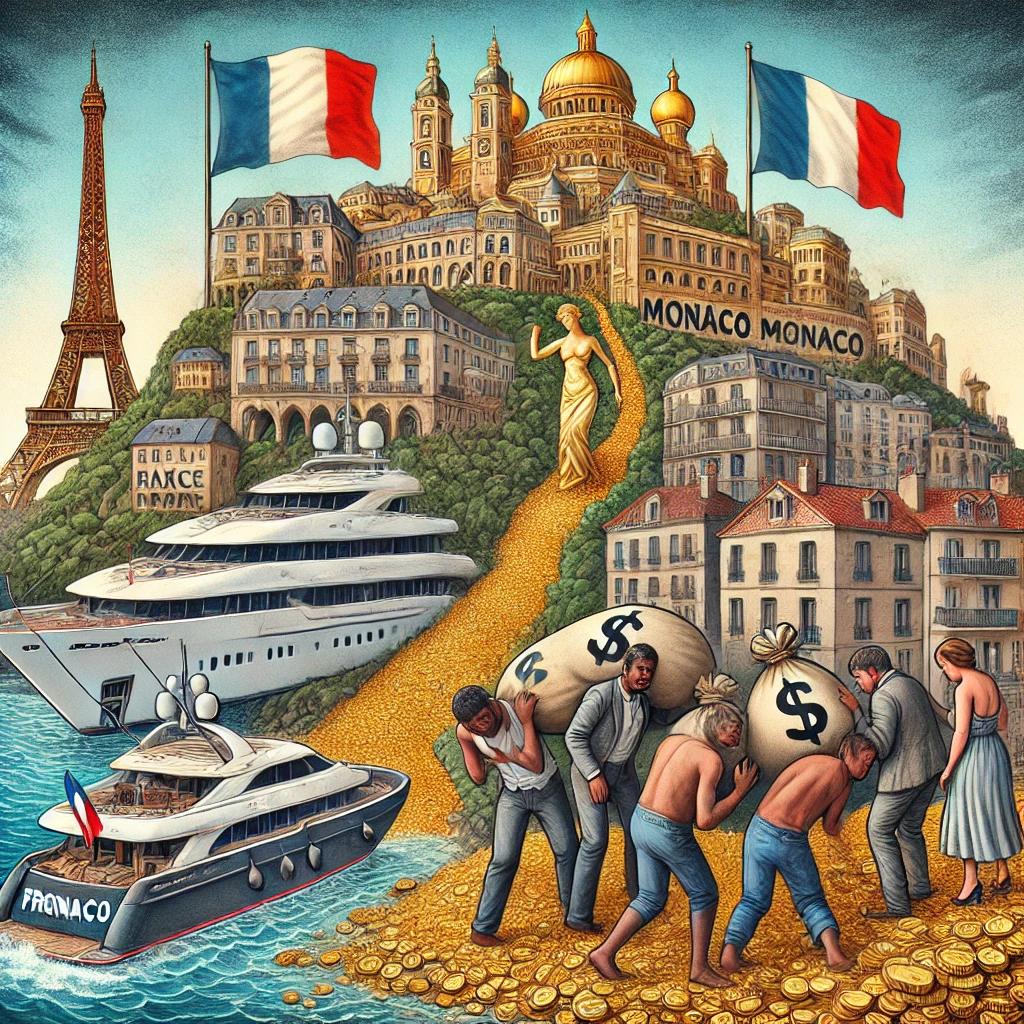Multinational corporations and super-rich families have developed a wide range of strategies to evade taxes and maximize profits. These practices exploit loopholes in international tax laws and rely on the collaboration of global banks and financial networks. The impact is profound, depriving governments of revenue and exacerbating economic inequality. This article explores how these schemes operate and the systems that enable them.
Corporations often manipulate transfer pricing to shift profits from high-tax to low-tax jurisdictions. Transfer pricing involves setting artificial prices for goods and services exchanged between subsidiaries. By inflating costs in high-tax countries and underreporting profits in others, they reduce their overall tax burden. This method ensures that profits appear in countries where taxes are minimal or nonexistent, leaving higher-tax countries with less revenue.
Tax havens and shell companies play a critical role in these schemes. Corporations establish subsidiaries in jurisdictions with low or zero corporate taxes, such as the Cayman Islands or Bermuda. These entities often have no substantial business operations but serve as conduits for profits. They hold intangible assets, conduct paper transactions, or simply act as holding companies. Banks in these regions protect the secrecy of these operations and facilitate the movement of funds across borders.
Debt
Debt financing is another common tactic. Corporations fund operations in high-tax countries through loans from subsidiaries in low-tax jurisdictions. The high-tax subsidiaries then deduct interest payments from their taxable income, reducing their tax obligations. Meanwhile, the low-tax subsidiaries report the interest income with minimal or no taxation. This practice shifts profits without triggering scrutiny.
In addition to these methods, corporations exploit tax treaties by routing profits through countries with favorable agreements. This practice, known as “treaty shopping,” reduces withholding taxes and minimizes obligations. Hybrid mismatch arrangements further complicate tax systems. Corporations exploit differences in how countries classify financial instruments or entities. For instance, they might treat an instrument as debt in one country and equity in another, enabling double deductions or untaxed income.
Evade taxes and maximize profits: Super-rich families
Super-rich families are deeply integrated into these practices. Many own significant stakes in multinational corporations and global banks. They use private trusts, holding companies, and foundations to shield their wealth and avoid taxes. These tools help them build intergenerational pipelines for preserving fortunes. Offshore accounts and tax havens ensure that their wealth remains beyond the reach of tax authorities. Charitable foundations often serve dual purposes, acting as vehicles for shielding assets while projecting a benevolent image.
Intellectual property
Intellectual property (IP) migration is another strategy that benefits both corporations and elite families. Corporations transfer IP rights to subsidiaries in low-tax jurisdictions. Profits derived from licensing fees or royalties flow to these subsidiaries, significantly reducing taxable income in higher-tax countries. Banks play a central role in these operations, designing and managing the structures needed to execute such schemes. Shadow banking systems offer additional tools for moving wealth discreetly across borders without regulatory oversight. Banking secrecy laws in countries like Switzerland and Panama further protect these activities.
Super-rich families also wield significant influence over global governance. They fund lobbying efforts to shape tax laws in their favor. Their financial contributions influence policymakers to create loopholes and block reforms. They often place allies or family members on corporate boards to oversee tax avoidance strategies. To suppress scrutiny, they control media outlets and fund think tanks that promote narratives distracting from their activities.
Their influence extends into resource control and the digital economy. Many families dominate essential commodities like oil, minerals, and water, using monopolistic practices to inflate prices. They invest heavily in technology and partner with tech giants to monetize personal data. Surveillance systems, often justified as national security measures, allow them to monitor populations and secure their dominance.
Evade taxes and maximize profits: People who make the economy lose money
The implications of these practices are profound. Governments lose billions in tax revenue each year, forcing them to rely on other sources, often burdening ordinary citizens. Public services suffer from underfunding, while economic inequality widens. The concentration of wealth and power in the hands of a few undermines democratic processes and deepens global disparities.
Despite efforts like the OECD’s Base Erosion and Profit Shifting (BEPS) initiative, these practices remain widespread. Wealth and power have created a system that protects and perpetuates itself. Tackling these issues requires not only reforms to tax laws but also greater transparency in global financial systems. The influence of super-rich families and multinational corporations on these systems must be addressed to create a more equitable world.
This article sheds light on the mechanisms that drive these inequities. It also highlights the urgent need for action to disrupt these practices. Without meaningful change, the global financial system will continue to serve the interests of a privileged few, leaving the majority to bear the costs.
The Czech case

The Czech Republic loses a significant amount of revenue, roughly equivalent to what it allocates for social causes, due to tax evasion and aggressive tax avoidance by corporations and wealthy individuals. These losses deprive the state of funds that could support vital programs, such as healthcare, education, and pensions, directly impacting the quality of life for its citizens. With an already strained budget, this missing revenue exacerbates inequality, forcing the government to either cut services or increase taxes on ordinary people. Addressing this issue is critical to ensuring fair taxation and maintaining a functioning social safety net for all citizens.
France and Monaco, the most pervert example

Monaco, often referred to as a tax haven for the ultra-wealthy, presents a striking example of how the super-rich evade taxes while neighboring France bears significant social and economic costs. Monaco’s lack of income tax and favorable financial regulations make it an attractive destination for wealthy individuals and corporations seeking to shelter their assets. By relocating to Monaco or funneling their wealth through its financial systems, the wealthy avoid contributing to the tax base in their home countries, including France, which loses billions in potential revenue as a result.
The tax evasion facilitated by Monaco affects France on multiple levels. Wealthy French citizens often claim residency in Monaco while maintaining substantial ties to France, allowing them to enjoy the benefits of French infrastructure and services without paying their fair share. Monaco does not levy taxes on personal income, capital gains, or property, creating a system that incentivizes tax avoidance. French authorities have limited tools to combat this, as Monaco’s financial secrecy laws make it difficult to track the assets and activities of French nationals who exploit these loopholes.
Evade taxes and maximize profits: Social cost
The social costs for France are significant. Tax revenues that could fund essential public services such as healthcare, education, and social housing are siphoned off. France has a robust social welfare system, but funding it requires a steady inflow of tax revenue. When wealthy individuals and corporations evade taxes, the burden shifts to the middle and working classes, who must make up the difference. This creates a regressive tax environment, where those with the least ability to pay contribute a disproportionate share, while the ultra-wealthy escape unscathed.
Additionally, the loss of tax revenue exacerbates inequality in France. Public services suffer due to underfunding, directly impacting lower-income citizens who rely on them the most. For instance, cuts in healthcare budgets can lead to longer wait times, fewer medical resources, and reduced access to care. Similarly, underfunded schools struggle to provide quality education, which widens the gap between wealthy and disadvantaged students. Social housing projects, critical for addressing homelessness and housing insecurity, also face setbacks when funding falls short.
Confidentiality laws
The use of Monaco as a tax haven also undermines France’s efforts to create a fair economic system. While ordinary citizens and small businesses pay taxes that sustain the country’s social fabric, the wealthy exploit Monaco’s favorable conditions to shield their income and assets. For example, prominent business leaders, athletes, and entertainers often claim residency in Monaco, reducing their tax obligations in France. Corporations may set up shell companies or subsidiaries in Monaco to reroute profits and avoid corporate taxes.
Financial secrecy in Monaco further complicates matters. Banks and financial institutions operating in Monaco adhere to strict confidentiality laws, making it difficult for French authorities to trace hidden wealth. Offshore trusts and shell companies obscure the true ownership of assets, allowing the wealthy to evade detection and accountability. Investigations, such as the “Panama Papers” and “Paradise Papers,” have highlighted how Monaco’s banking system facilitates tax evasion on a global scale, with France being one of the hardest-hit countries.
Too strong politically
France also faces diplomatic challenges in addressing the issue. Monaco’s sovereignty limits France’s ability to enforce its tax laws or compel cooperation. Although agreements exist between the two countries, enforcement often lags behind the sophisticated methods used by the wealthy to hide their assets. Efforts to combat tax evasion through international cooperation, such as the OECD’s initiatives, face resistance due to Monaco’s vested interest in maintaining its status as a tax haven.
In conclusion, Monaco’s tax haven status imposes significant social and economic costs on France. Wealthy individuals and corporations exploit Monaco’s favorable tax regime to avoid paying their fair share, draining France of resources needed for public services and welfare programs. The resulting inequality burdens ordinary citizens while undermining trust in the fairness of the economic system. Addressing this issue requires stronger international cooperation, stricter enforcement of tax laws, and increased transparency in Monaco’s financial system to ensure that the wealthy contribute to the societies they benefit from.
Evade taxes and maximize profits: Conclusion
The Western financial system has become a playground for multinational corporations and super-rich families to evade taxes and maximize profits at an unprecedented scale. Their strategies exploit legal loopholes, abuse international treaties, and thrive on the secrecy provided by tax havens and global financial networks. These practices do not exist in isolation—they leave nations, especially middle and lower-income populations, to shoulder the burden of funding public services and social infrastructure. The consequences are clear: underfunded healthcare, struggling education systems, widening inequality, and weakened social safety nets.
The Czech Republic exemplifies this loss, as it forfeits revenue equivalent to its social spending due to tax avoidance. This missing money could fund vital services like healthcare and pensions but instead forces the state to either cut services or increase taxes on ordinary citizens. Meanwhile, France faces an even more egregious case with Monaco, where the ultra-wealthy and corporations exploit the principality’s tax-free status. French taxpayers bear the cost, with resources siphoned away from social programs, leaving the middle and working classes to fill the gap. Public services like housing, schools, and hospitals deteriorate while the elite enjoy unaccountable privileges.
Switzerland and Panama
Banks and financial systems, especially those in secrecy-heavy jurisdictions like Monaco, Switzerland, or Panama, facilitate these schemes. They provide the tools and networks necessary for the wealthy to hide assets, transfer profits, and avoid scrutiny. While ordinary citizens pay their share, the ultra-rich benefit from a system designed to protect their interests. Efforts like the OECD’s BEPS initiative have attempted to combat these practices, but they face resistance from powerful interests committed to preserving this inequitable status quo.
Addressing these injustices requires stronger enforcement of tax laws, greater transparency in financial systems, and international cooperation to dismantle tax havens. The financial system must prioritize fairness over the unchecked accumulation of wealth. Without decisive action, the gap between the privileged elite and the rest of society will continue to grow, eroding trust in institutions and leaving the majority to pay the price.

Leave a Reply